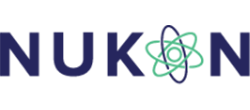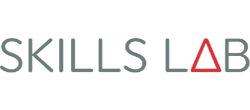SAGE delivered a complex control system upgrade for Darwin RAAF base's fuel system, a critical piece of infrastructure that stores and pumps millions of litres of aviation fuel.
- Our Work
- Defence Stories
SAGE delivers complex fuel farm control system upgrade for RAAF
Access the best thinking, right here. Have a question you don't see an answer to? Enquire now
Industry
Defence
Outcome
Upgrade of control systems for two airfield fuel farms, key pieces of Defence infrastructure.
Capability
Panel design, procurement, build and FAT; Safety and Hazardous Area documentation, software and hardware FAT, control system upgrade to facility completed while remaining operational.
Region
Darwin, Northern Territory, Australia

Michael Zampa, Operations Manager, Tiwi Partners
"SAGE’s willingness to collaborate with all partners and their ability to find solutions in challenging circumstance was critical to the success of this project.”Challenge
RAAF Base Darwin is one of the Royal Australian Air Force’s main operating bases. The base has two onsite fuel farms to store and supply fuel to RAAF aircraft. As critical infrastructure to support RAAF operations, the fuel system is capable of storing and pumping millions of litres of aviation fuel. This supply is needed for refueling aircraft multiple times per day, and forms part of the fuel security strategy for Australia.
SAGE Automation was engaged by principal contractor, Tiwi Partners, to deliver a complete upgrade of the electrical and control systems for two fuel farms to current technology to ensure continued performance. A failure occurring within the fuel farm facilities may result in planes having to be diverted to another airbase.
Each fuel farm comprises a complex network of tanks, pipes, pumps and in-ground refilling points (hydrants). One farm is the main point for dispensing to and offloading of road tankers. The other farm provides additional capacity for storage and supply to key replenishment areas. The legacy systems for the two farms had individual controls and interfaces with only minor integrated controls between the farms.
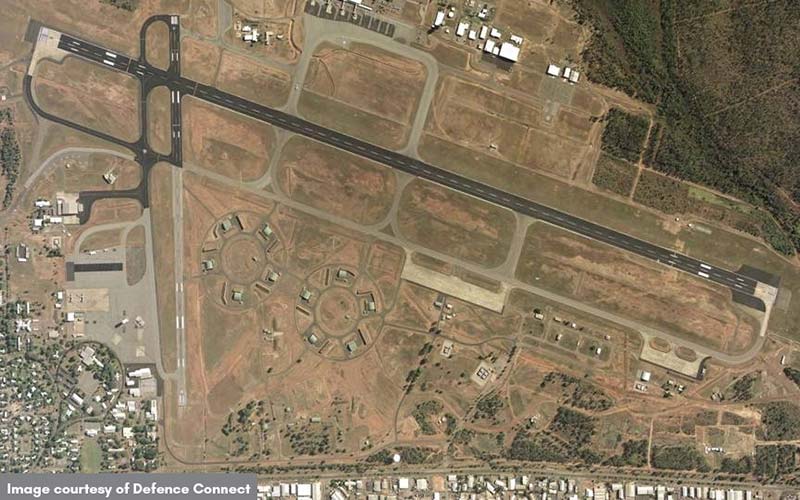
A facility heavily utilised by the RAAF, the fuel farms needed to remain fully operational during the upgrade from the legacy control systems. RAAF and Australian Army exercises were underway during this period, requiring SAGE Automation and other project stakeholders to adapt and work around these exercise periods.
Solution
Project stakeholders:
- Augility/JLL - Department of Defence's Project Manager and Contract Administrator
- Tiwi Partners - Principal Contractor
- AECOM - Department of Defence's design service consultant
- Department of Defence - Fuel Services Branch
- Royal Australian Air Force (RAAF).
Project management and stakeholder collaboration
The project took place over a period of 18 months, with all project partners committed to alignment with the schedule.
One of the major contributors to managing the operational risk involved in the upgrade was the development of a capability matrix outlining what functionality would be available, aligned to a period within the schedule.
During the development of the matrix, input was obtained from multiple stakeholders to ensure it was accurate and achievable; this included gaining an in-depth understanding of how the existing control system functioned during normal use and fault conditions.
System design
SAGE Automation worked with AECOM, the design consultants, for the control panel switchboards, to finalise the layouts and produce the final design based on requirements of Fuel Services Branch.
Both fuel farms required the following functionality as part of the control system:- Fuel Management System to monitor movements of fuel and data from the tank gauging equipment
- An automated tank gauging system to monitor tank levels
- Level protection for the storage tanks to prevent safe levels being exceeded
- Emergency shutdown systems.
To meet project deadlines, control system development of the PLC and SCADA system was shared between SAGE’s Darwin and Melbourne offices.
Software Factory Acceptance Testing was conducted to ensure functionality required in accordance with the capability matrix was sufficiently tested prior to use on site, reducing the potential delay during commissioning when returning capability to service.
Manufacture of electrical panels
SAGE Automation’s manufacturing team delivered the panel design, procurement, build and FAT for the project.
The control system and electrical upgrade required the manufacture of 15 electrical panels, including a hybrid design with a switchboard on one side, and the control system mounted on the other. With a compressed timeline of 14 weeks to complete the FAT of the panels, SAGE deployed two teams of six people, who worked simultaneously across a total of 3198 hours to meet the deadline.
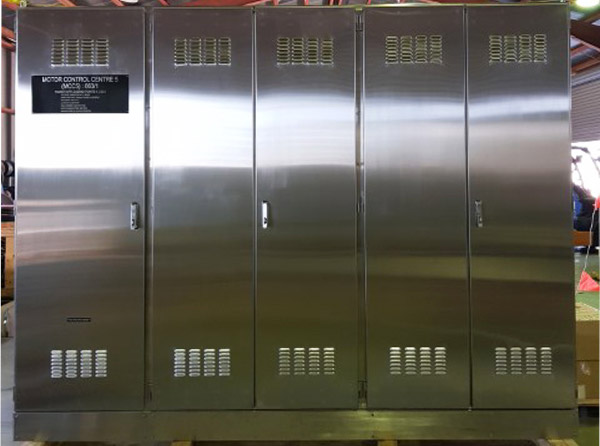
SAGE was responsible for the general arrangement, and aspects of the design to suit existing infrastructure and installation locations. The FAT was completed in Adelaide with the design consultants present (pre-COVID-19).
To complete two panels requiring an upgrade in situ, SAGE’s manufacturing team built the back plates as a replacement of the existing ones. All equipment was prewired and tested prior to shipping to reduce the installation time onsite.
Pre-commissioning
Installation and commissioning took place while maintaining capability in supply to the RAAF, which required an understanding of the legacy control system to ensure effective maintenance and cut-over while the upgraded solution was installed and commissioned.
Commissioning
During preparations for commissioning, a project to extend the control room was running concurrently with electrical installations. The SAGE team worked around the building contractors, modifying hours and space as needed to complete test commissioning and ensure the project schedule could be maintained. With COVID-19 restrictions coming into effect during commissioning, the design consultants were unable to travel to site to witness testing and complete the sign-off. The SAGE project team enabled this to be completed remotely.
Due to the substantial electrical changes required for the upgrade, a Hazardous Areas inspection and audit was required prior to re-energising equipment. SAGE delivered hazardous area inspection and documentation with summary briefs and key installation components inspected remotely due to COVID-19 restrictions.
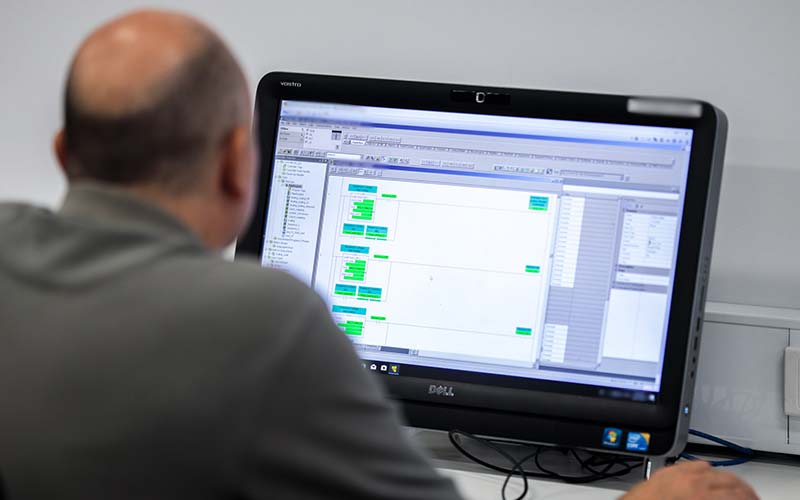
Training
Throughout the project, SAGE Automation’s project manager worked with SAGE Group sister company, Skills Lab, to develop RAAF operator training on the new systems.
Due to COVID-19 restricting travel, the Skills Lab trainer was unable to attend the site to provide classroom-based training, so the materials were adapted and added to a virtual training portal.
Following handover, RAAF operators were able to complete the training via the online training portal.
Outcome
The completed solution provided an agnostic control system, incorporating multiple independent systems that may not have been previously interfaced together elsewhere in the world.
Previously, the two fuel farms had their own controls and interfaces, now the implemented solution is a single control system that oversees the entire installation from a single SCADA interface.
Stakeholder collaboration was a key contributor to project success. In addition, the high level of support provided to SAGE from Tiwi Partners, throughout the life of project, enabled SAGE to achieve the end result.
The ongoing support from Augility, AECOM and Fuel Services Branch was also crucial to the project’s success.
As a result, the end-user operators now have an easy-to-use, clear and simple interface from which to conduct operations, and monitor and trend all values from one location. This minimises the required manning to safely operate the facility.
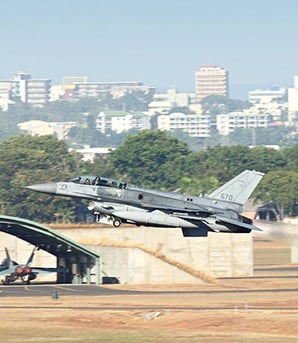
Project highlights
- Project schedule was developed and maintained with input from all key stakeholders, ensuring project success.
- Understanding of legacy system and maintenance of refueling capability critical to ensure RAAF operations could continue.
- Commissioning of the complex fuel farm completed with remote assistance due to COVID-19.
- Final phase of commissioning completed around aircraft refueling operations.
One Column Text
Talk to us about...
By submitting your information through this website, you consent to receiving marketing communications from SAGE Group Holdings Ltd and its related entities including SAGE Automation, Nukon, Skills Lab and Embedded Expertise (“SAGE Group”). You can opt-out of these communications at any time by clicking the 'unsubscribe' link at the bottom of the email or by contacting any member of the SAGE Group directly. Your personal information will be processed and stored in accordance with our privacy policy.

